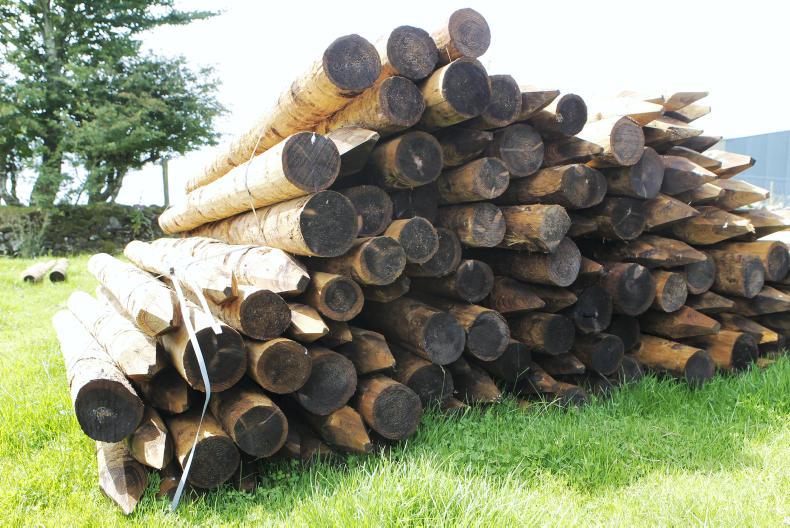The majority of agreements under the wider level of the Environmental Farming Scheme (EFS) contain measures for watercourse fencing, creation of riparian zones along a waterway, or hedgerow planting.
Figures obtained from DAERA combined the first two of these options for watercourse management, and show that 743 agreements contained these measures. This equates to 63% of the 1,187 agreements that were finalised in the first tranche of the scheme last month.
The next most popular option was planting new hedgerows with two protective fences. This option appears on 482 or 41% of wider agreements.
Applicants to the wider level of EFS could select up to four options from a list of 18. The DAERA figures highlight that most scheme participants selected less than two options on average, with 2,191 measures selected across the 1,187 agreements.
The next most common option was creation of tree enhanced boundaries with 205 agreements containing this measure. Hedge-laying with double fencing (rejuvenating existing hedges) is on 124 agreements and 109 agreements have dry stone wall building.
Only 18 farm business applied to the standalone option to convert to organic farming and 42 agreements include the organic management option for fully certified organic farms.
The other two standalone options proved slightly more popular, with 96 opting to establish native woodland under 5ha and 53 selecting the option for grazing with native cattle breeds (Irish Moiled).
Submission of EFS higher-level plans
The first environmental plans that will form the basis of agreements for farmers under the higher level of EFS are being submitted to DAERA this week.
Farmers accepted into the first tranche of the higher-level scheme have to contact environmental planners to survey designated land and produce site specific remedial management plans (ssRMP) ahead of agreements starting on 1 January 2018.
Planners contacted by the Irish Farmers Journal confirmed that most of the 422 scheme participants are now in the process of getting land surveyed.
The current deadline for submitting ssRMP is 26 September 2017.
“We are starting to submit plans to the department after attending a training day this week. There is a shortage of planners so there is a good bit of land still to be surveyed,” one planner said.
The fee for this service is to be agreed between the planner and farmer. The farmer is then reimbursed for the planner’s fees by DAERA after the plan is approved.
However, some planners have raised concerns that they may not get paid for their work if the farmer decides not to proceed with the scheme or the department does not approve the plan.
“Most measures are similar to previous agri-environment schemes so I am hopeful that farmers and DAERA accept them, but it is a worry that I am unlikely to get paid for my work if a plan is not approved,” one planner said.






 This is a subscriber-only article
This is a subscriber-only article










SHARING OPTIONS: